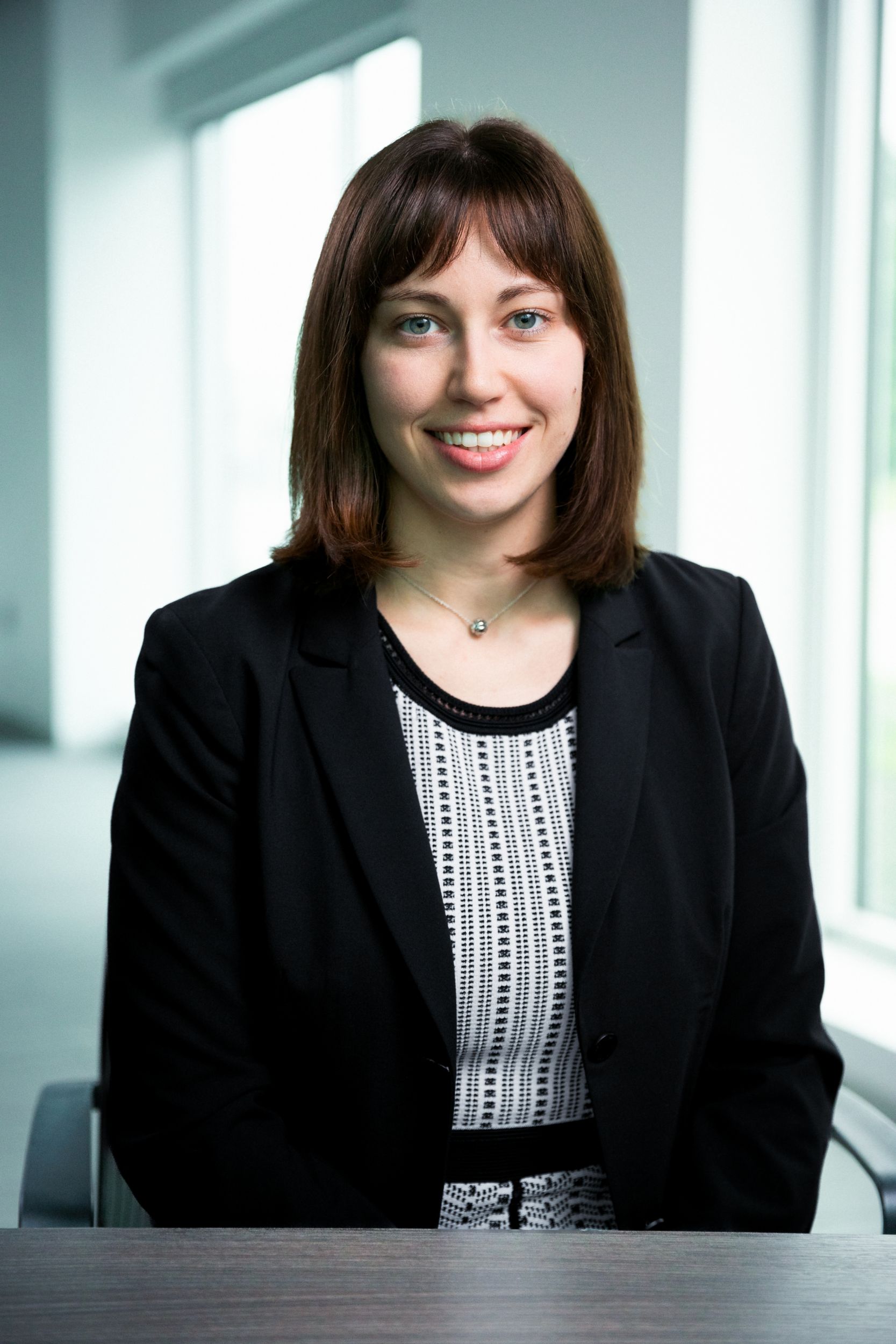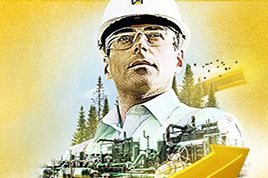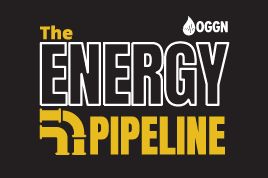

Sign In
Welcome! Sign In to personalize your Cat.com experience
If you already have an existing account with another Cat App, you can use the same account to sign in here
Register Now
One Account. All of Cat.
Your Caterpillar account is the single account you use to log in to select services and applications we offer. Shop for parts and machines online, manage your fleet, go mobile, and more.
Account Information
Site Settings
Security
Day in the Life: Lizzie Hurt
The oil and gas industry is complex, and our customers routinely have special needs and custom requests. Lizzie Hurt, sales support engineer, is on call to do whatever is needed to make sure her customers are taken care of. When she’s not at work, Lizzie and her husband love spending family time with their two dogs and pursuing all sorts of outdoor activities.
By Danielle Wills and Lizzie Hurt | Posted June, 2023
Q: WHERE ARE YOU FROM?
A: I grew up in a suburb of Chicago and went to Purdue University in Lafayette, Indiana, where I received my bachelor’s and master’s degrees in mechanical engineering. I've lived in Houston for the past two and a half years.
Q: HOW DID YOU START YOUR CAREER AT CATERPILLAR?
A: I have been full time with Caterpillar for five years. I interned for a year and a half before I started full time. For the first two years as an employee, I participated in the engineering rotational development program where I was exposed to design engineering, testing and technical marketing. That program was fantastic, as I became familiar with roles and parts of the company I may not have otherwise come across.
Q: WHAT IS YOUR ROLE NOW AND HOW LONG HAVE YOU BEEN DOING IT?
A: My role right now is a sales support engineer. I've been in that role for about two and a half years. It’s a dealer-facing position, and our team provides “designed-to-order” quotes for custom oil and gas products. I've had a couple of responsibilities. Starting out, I supported custom quotations for oil and gas production gensets. More recently, I've been supporting gas compression electric motors, both from the sales support engineering side as well as the application and installation side. I love the work because it’s fast-paced and rewarding to support our customers.

Also, I've been involved with recruiting ever since I was an intern, and I’m happy that my current role has the flexibility to let me continue. I was involved with the Purdue recruiting team when I was based at the company’s Lafayette office. In Houston, I've still been involved with Purdue recruiting and am also participating at Texas A&M. I really enjoy representing Caterpillar at recruiting events, answering questions and sharing my own experiences. Caterpillar was the best internship that I had throughout my college years, and I like encouraging others to consider becoming interns.
Q: DO YOU MOSTLY WORK ALONE OR WITH OTHERS?
A: I have a healthy mix of working by myself and with a team, which is good because I like to collaborate. And, of course, I work with our customers, which I thoroughly enjoy.
Q: HOW WOULD YOU DESCRIBE THE COMPANY CULTURE AT CATERPILLAR?
A: From a cultural standpoint, the thing that struck me as a young engineer just out of college is how focused Caterpillar is on professional development. The engineering rotational development program is about development by nature, but outside of that, I've always felt that my managers cared about development. They made sure I was being challenged and growing in my role and that I had access to training when it was needed. But really, everyone at Caterpillar has been willing to help me, whether it's a simple 15-minute phone call, a project question or just getting to know people. Everyone has been very supportive. Along with that great support, the culture is highly collaborative. We compete in business but we don’t compete with each other.
Q: DO YOU HAVE PROFESSIONAL DEVELOPMENT RECOMMENDATIONS?
A: Continuous learning is very important. Seek formal and informal training that will help you in your current job. Whether it's some external training or getting to know team members - it's going to be different for different people. I learned from a number of people, including sales support engineers, application and installation engineers, and external partners. That was a huge part of the onboarding process for me in this position. I'd also highly recommend finding a mentor. Having someone who is trustworthy and willing to give guidance or perspective on a situation is immensely helpful.
Q: WHAT’S YOUR ADVICE FOR AN ENGINEER WHO IS JUST STARTING THEIR CAREER?
A: I think that the most important advice I can give is to ask questions. That may sound like something that everyone would do, but it can be easy to hang back when you’re just out of college and starting a career. In fact, being new gives you permission to ask any and all questions about the company and your job, and I think it’s important to take advantage of this and really dive into what you need to know to succeed.
You can hear more from Lizzie on The Energy Pipeline podcast. As a co-host, Lizzie will discuss key developments, opportunities and challenges shaping the future of oil and gas.
Related Content
-
The Cat® Blog
The Cat Blog is dedicated to sharing expert advice and industry knowledge to help our customers do the work better. Read our customer stories, tips and resources.
Learn More -
Oil & Gas
Discover Caterpillar oil and gas solutions and applications. Designed to be durable and efficient, our oil and gas generators are prime movers that deliver low operating costs.
Learn More -
The Energy Pipeline Podcast
Ready to learn about all things Oil & Gas? Listen to The Energy Pipeline Podcast, powered by Cat Oil & Gas. The Energy Pipeline is a new podcast that provides fresh insight every week on issues impacting our industry. Learn from the brilliant hosts who combined provide over 50 years of industry experience enabling you to elevate your insight into today’s most exciting topics. From hydraulic fracturing to the future of the industry through sustainable lenses, there’s so much to listen to. The Energy Pipeline is the latest of many podcasts produced by Oil and Gas Global Network™ (OGGN™), the world’s largest network of oil and gas podcasts, educating listeners on a variety of topics.
Learn More



